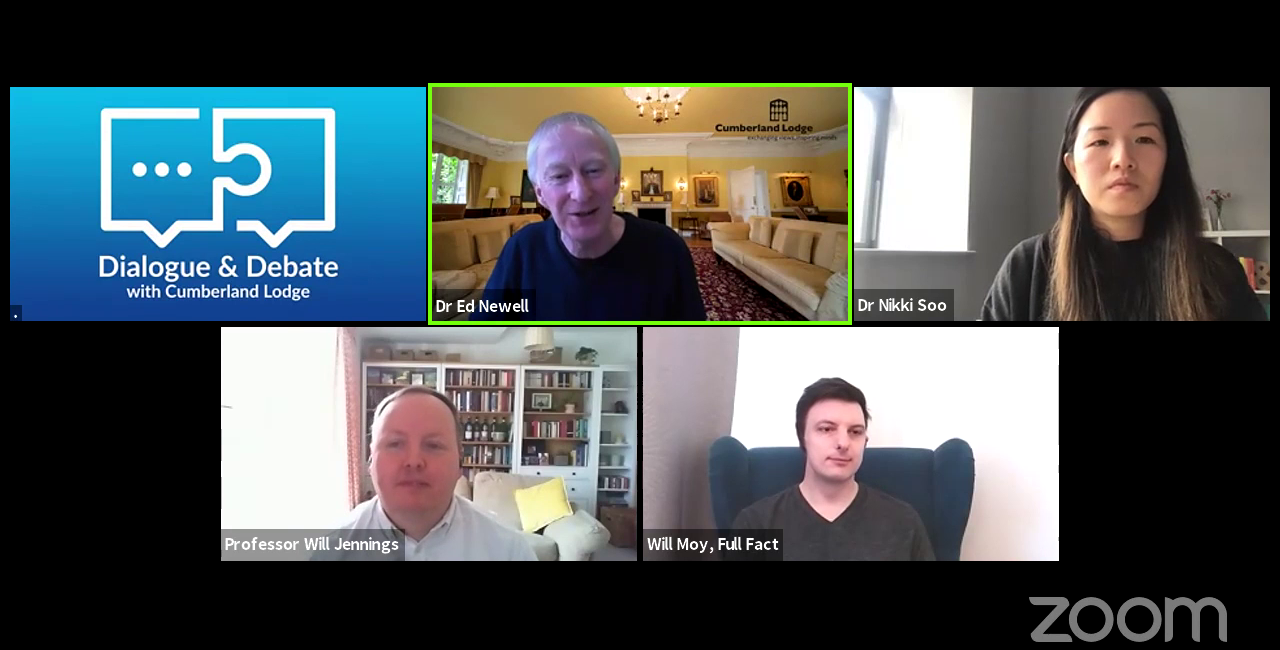This Dialogue & Debate webinar set out to better understand the social implications of declining public trust in government, the media and between communities. It was hosted by Cumberland Lodge Chief Executive, Dr Ed Newell.
The discussion explored different ways of restoring public confidence and being able to ‘Build Back Better’ as pandemic restrictions are eased in the UK.
Guest panellists involved in the discussion were:
- Will Jennings – Professor of Political Science and Public Policy at the University of Southampton; Principle Investigator of the ‘TrustGov’ project
- Will Moy – Chief Executive of Full Fact, the UK’s independent fact checking charity
- Dr Nikki Soo – Social researcher at Ipsos MORI; Honorary Research Associate at the Cardiff School of Journalism Media & Culture.
Ed opened up the webinar with a live poll, asking audience members to answer the following question: ‘How has your trust in government changed throughout the pandemic?’
Respondents could choose from the following options:
- Generally risen
- Generally fallen
- Stayed the same
- Varied over time
Although the poll was open to participants in the UK and elsewhere in the world, rather than the UK specifically, the results showed that for most people watching, trust in their respective governments had generally fallen throughout the pandemic, which helped set the scene for the discussion.
What is public trust?
Kick-starting the debate, Professor Jennings offered his perspective by making the distinction between general trust, the trust between individuals, and public trust, which encompasses political and social trust; for instance, the trust we have in government, institutions and people, which is reliant on what they do for us.
Dr Soo added that public trust is on a continuum; therefore, it can change at any point in time and can be very tricky to measure.
Finally, Moy stated that public trust is a fragile phenomenon that can be easily broken, and when that happens there can be serious consequences, especially for those in politics.
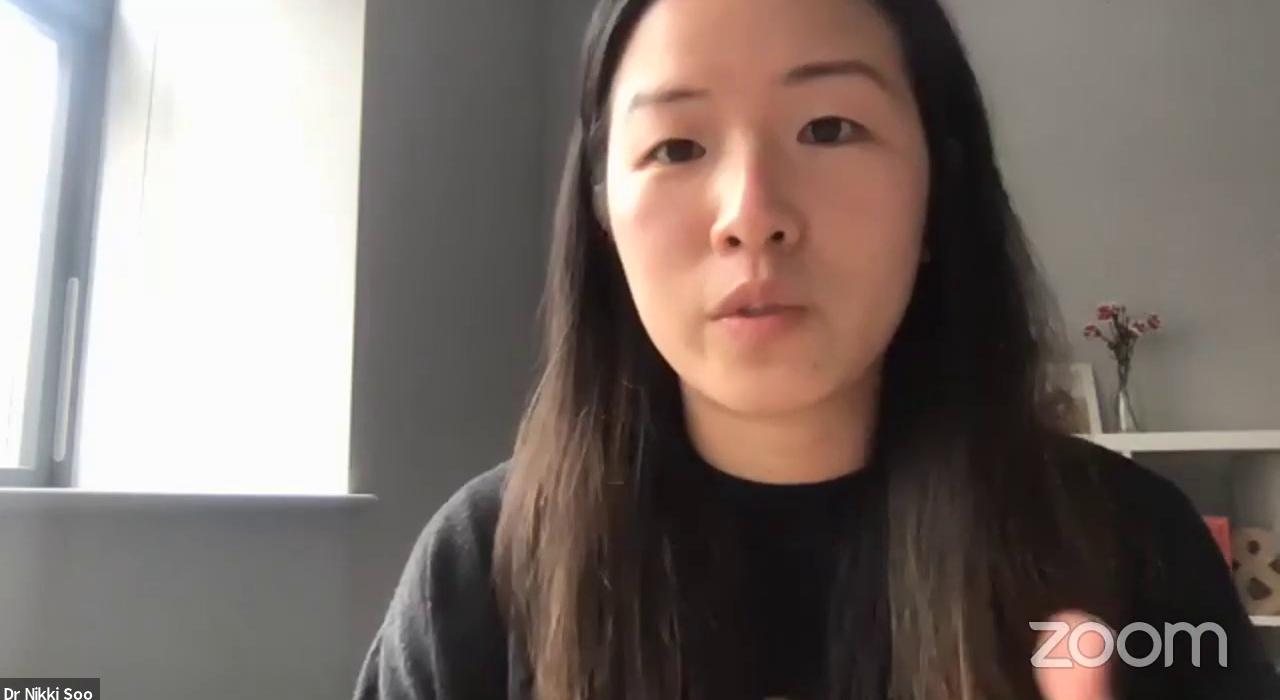
The expression of trust as something that takes a lifetime to make and a moment to break resonates with me, given how fickle we, as the public can be when placing trust in those who are there to ultimately to protect us.
An example that springs to mind, quite vividly, is the recent scandal surrounding former Health Secretary, Matt Hancock. To me, personally, it seems unconscionable that someone telling millions of people to abide by certain rules and restrictions was found to be breaking them himself; breaching the trust of the public and all the NHS and social care workers who have sacrificed so much during this pandemic.
Is public trust in government and the media falling?
Ed went on to suggest that levels of public trust in government and the media had been found to be decreasing before the pandemic, and he asked Professor Jennings and Dr Soo whether this trend had continued.
Professor Jennings surmised that some interesting dynamics have emerged in relation to trust in governments during the pandemic, in the UK and abroad.
During the initial lockdowns that governments imposed, he observed that there was a general ‘rally around the flag’ mentality, which chimes with the political science stance, that during a moment of crisis, people come together in a spirit of solidarity. In light of this, Jennings stated that trust in leaders and governments around the world generally increased during this time – something that has been backed up by research studies.
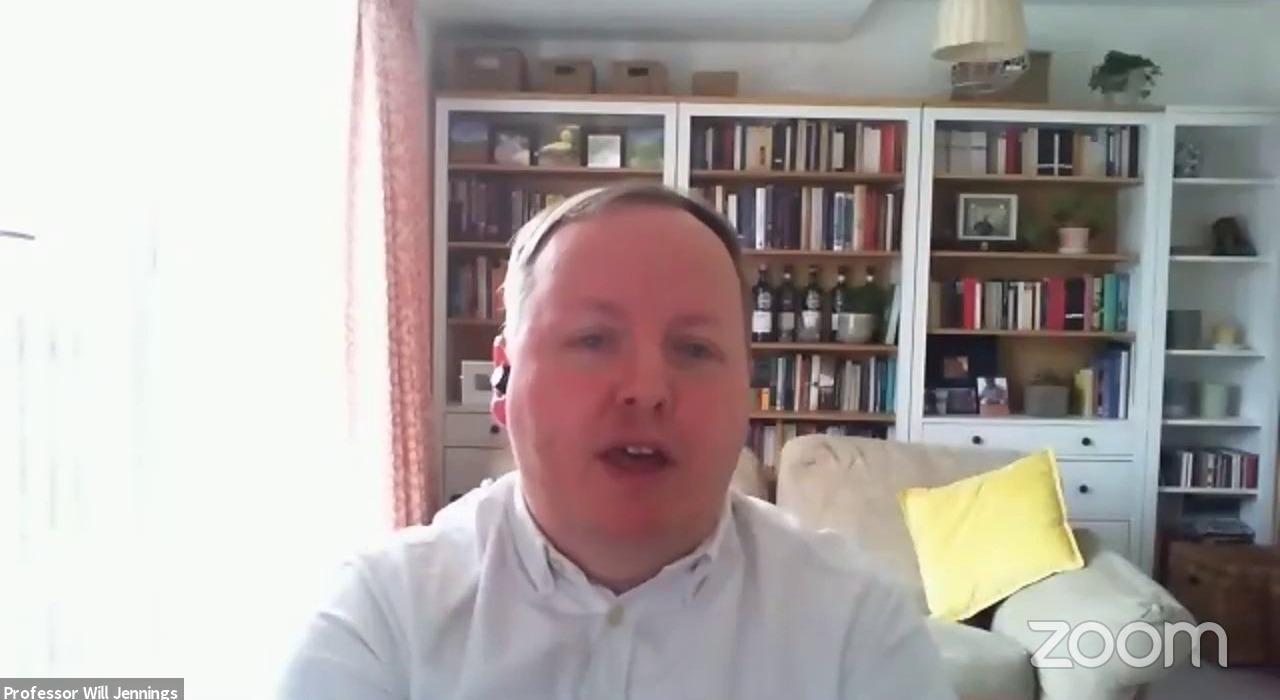
As the pandemic went on, however, public trust started to look more like a rollercoaster, with a lot of ups and downs.
Here, Professor Jennings shared the recent results of the TrustGov project that showed varying layers of public trust. At one level, participants had a ‘shopping list’ of criticisms and concerns about their respective governments that was reflected in levels of public trust. However, paradoxically, people’s belief and trust in governments to protect them and take care of them was unwavering; something that Jennings found curious.
Moving on to people’s trust in the news and media during the pandemic, Dr Soo began by quoting some data from her Ipsos MORI research, showing that trust has broadly stayed the same throughout the pandemic so far.
Soo also commented that perceptions and attitudes can take a while to shift, so even with COVID-19, it may be a while yet before we see any noticeable changes in public trust towards the media.
However, one notable difference that she highlighted was the consumption of television news, which has increased since the start of the pandemic. Prior to the outbreak of COVID-19, Soo stated that audience consumption of this kind of media content was falling. This change is one sign that the public have been switching back to more traditional outlets to get accurate facts and information.
How can public trust in government be restored?
Ed invited Will Moy to offer his perspective on how public trust in government can be repaired, and whether or not the media can assist in achieving this goal.
Moy spoke about the fragmentation of the media in recent times and how it has contributed to the rise of misinformation, particularly alongside the increasing use of social media over the last decade. By way of comparison, he looked back at his own childhood and noted that print and broadcast media were a lot more limited, to a few key publications and channels, than they are today.
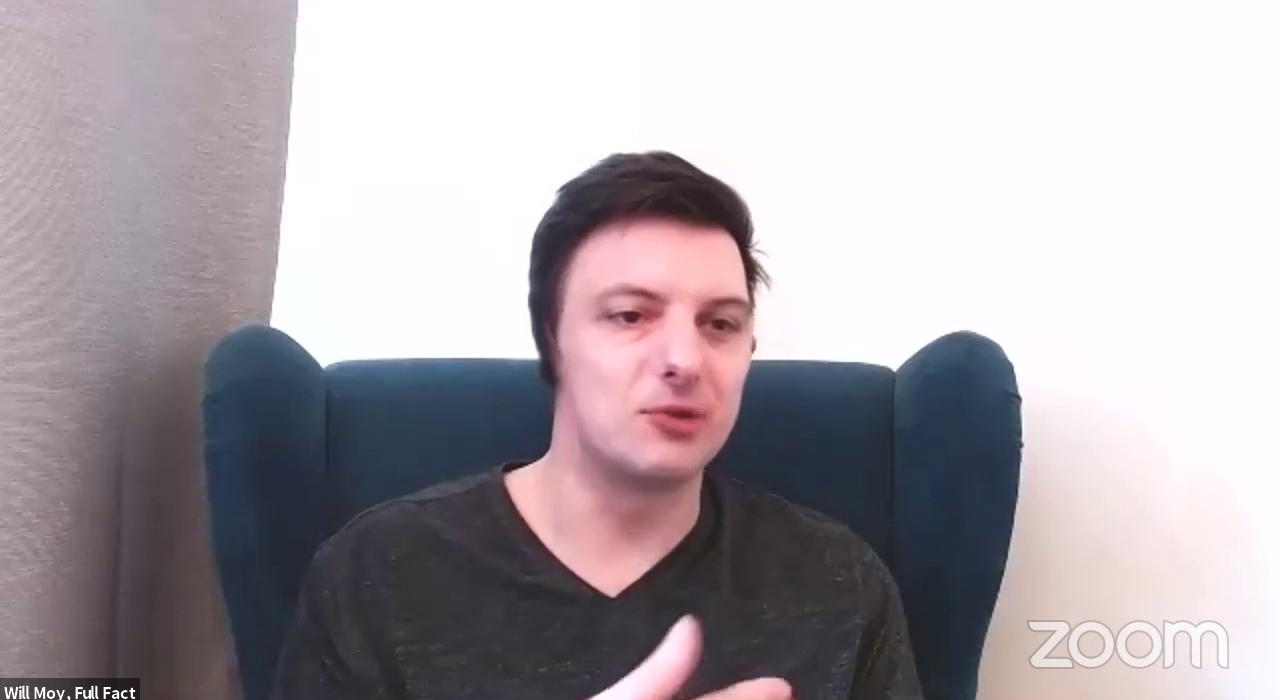
In a situation like a global pandemic, and with so many potential media sources available, it becomes particularly important that information given to the public is backed up by evidence and facts; not speculation or opinion. In terms of how governments can restore public trust, Moy suggested that they should stop ‘playing games’ with the public and media.
He added that official government communications should be independent from the political parties that produce them, as there can be a tendency for politicians to skew things in their favour, as we witnessed with the £350 million Brexit bus campaign in the UK, ahead of the EU Referendum in 2018.
Moy summarised his argument by stating that those in power need, ‘to try harder to live up to [the] ambition of government by explanation’ and that this is vital for maintaining our democratic values.
Does accountability increase levels of public trust?
In the second half of the debate, Ed asked the panel to answer questions submitted from the online audience. The topic of accountability came up and Ed sought panellists’ views on whether this could help to raise levels of public trust in government and politicians.
Professor Jennings began by saying that a theme emerged within his TrustGov focus-group research, spanning several countries, in terms of accountability and trust. This was that there was a high expectation for governments and politicians ‘to do, what they say they’re going to do’.
However, Will Moy stated that it is not so easy, in practice, to hold governments to account. For this reason, he argued that the ‘messy reality’ of democratic accountability makes it harder for governments and politicians to stick to their promises.
Moy cited the philosopher Onora O’Neill’s BBC Reith Lecture on accountability and trust, in 2002, during which O’Neill said that those who ‘seek truth as a guided purpose’, like the courts, must have formal rules in place if they are to achieve their objective.
Moy compared this with politics, where you would expect there to be such formal rules, yet they are largely absent. He gave the UK example of when MPs have made a mistake in the House of Commons but do not have the means to correct the formal record (unless they are a Government Minister). Moy argued that this is a ‘remarkable’ example of how rules that could hold those in power accountable and help build trust are simply not there.
Moy closed his remarks by stating that ‘trust is ultimately a reflection of how you choose to behave’ and that those who choose to behave irresponsibly will end up not being trusted by the public.
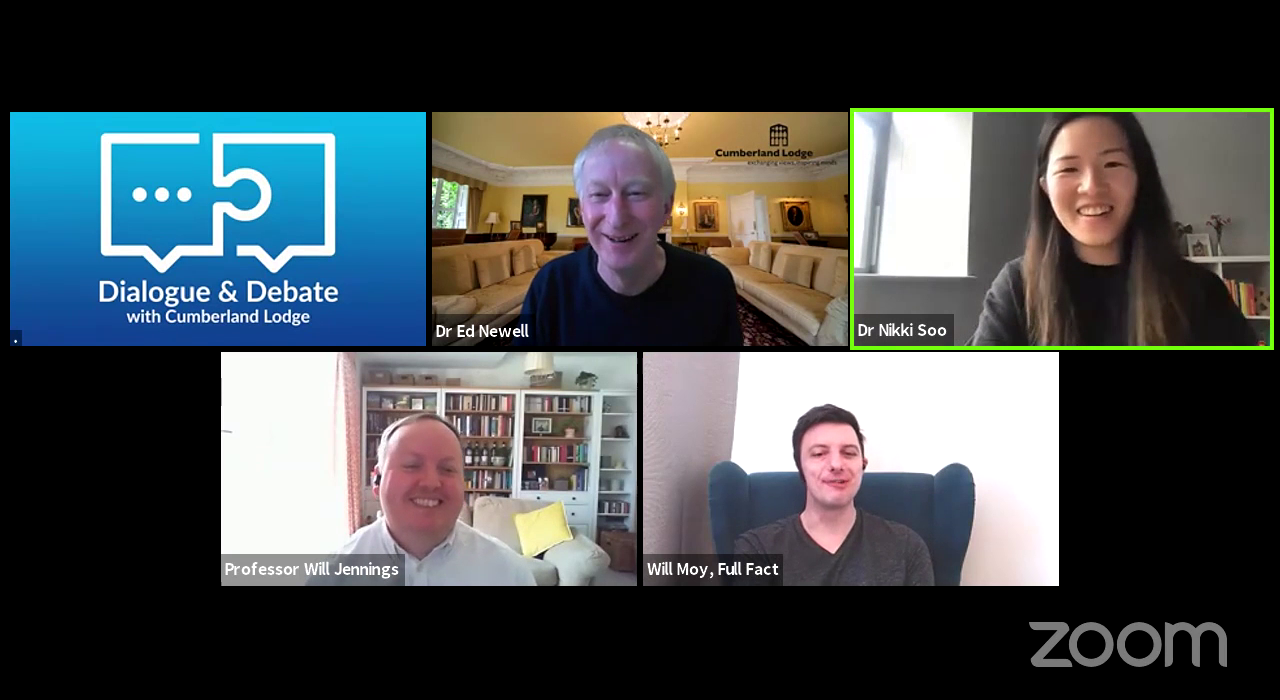
Final reflections
In just over an hour, this webinar covered a lot of ground. Given that public trust is like a pendulum that is continually swinging, depending on what is happening in the country (and the world), it can be a difficult concept to fully grasp. However, this discussion raised some important areas in which institutions, governments and politicians could implement better policy and practice to bring about the changes needed to help restore people’s faith and trust.
In my opinion, Will Moy said it best when he said that, ultimately, ‘you reap what you sow’ and if those in government and other institutions choose to act in a dishonest way, it does not take much for the pendulum of public trust to swing in the other direction.

